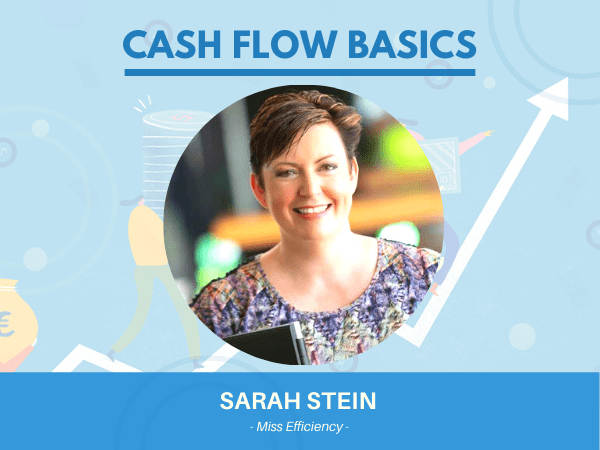
How to make your money work for you
G’day everyone out there, today we’re going to be talking about cash flow basics and why cash flow is important in your business. Cash flow should be straightforward enough, but people seem to keep doing it wrong. So we’ve got Sarah back again from Miss Efficiency Bookkeeping to see what we can get through when it comes to cash flow. So Sarah, what is the number one rule when it comes to cash flow?
Where is your money going?
Sarah: I think the number one rule is just to keep an eye on it. Just because you’re profitable on your P&L doesn’t necessarily mean that your business is going to be successful. You could have lots of profit on paper, but if you have no money in the bank, how are you going to make payroll? Or how are you going to make those loan repayments? I think the number one thing is to know where your money is going and when and where it’s coming from.
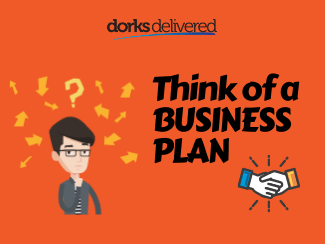
Sarah: From day one. Before you’ve got any money coming in, because how do you know how much money you need? How do you know what your expenses can be? How much money do you want out of the business? So I didn’t do that. I didn’t do that from day one.
Ideally, if somebody came to me and said, I’m going to start my new business, this is what it’s going to be, what should I do? This is what I would say to them. Put a cash flow in place. Now, it’s hard, don’t get me wrong. I’m a bookkeeper, and it’s still hard.
So think about a cash budget, for example. Now I like to reverse engineer things. So most people will start at their income. Then they’ll put their costs in the net, their expenses, and then if they’re lucky, they may or may not be some profit at the end, which the business owner may or may not get, because that profit may or may not actually be cash in the bank. So instead of doing that, let’s reverse engineer. Why are you in business, and what you want to get out of it? The first thing you could do is make a clarity plan. This is for you personally. It’s not thinking about the business yet. It’s thinking about what do I, Sarah, want to get out of the business? For myself and for my family.
We haven’t even got to the vehicle; we’re just starting at the destination. That’s where we want to be.
Example of a clarity plan
So my clarity plan, for example, is really simple. I have no debt and have two investment properties. So that if either of my children wanted to be, they could be set up with their own houses. That’s it. I don’t need a million dollars in the bank. I don’t need flash cars. I just want to have no debt and two properties. That’s what I want to work towards.
Think about your business plan
Then you need to go to the next layer below that, which is your business plan. So your business is going to achieve your clarity plan. What do you need to do in your business in order to achieve your clarity plan? So that’s going to talk about what are the projects that you’ve got to do. Put your business plan in place now with the end goal of achieving the clarity plan.
IT doesn’t have to be expensive. If you’re starting a business and need reliable IT support and services, fill out the form to learn more about $1 IT services.
Think about what you want from being in business
The clarity plan can change over time. When I started the business went gangbusters, but what I really wanted was to help businesses. So I pivoted to helping with automating businesses rather than automating Education Queensland. Nothing wrong with Education Queensland, but I would rather help businesses between five to 100 employees then help businesses with 10,000 employees.
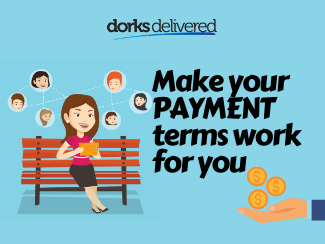
Sarah: That’s probably a question that’s a little bit beyond my scope, and more in line with an accountant or a financial planner, but I think that you need to look at everything as a whole. You need to look at your asset protection, where those properties are sitting, how you set up for tax, but that’s a whole different conversation in itself.
Cash flow is how you achieve your business plan
Coming back to the business plan, the step before that is how are you going to achieve your business plan? That’s your cash flow projection. If we start at the bottom, you’ve got your cash flow, which is working towards your business plan, which is then working towards the clarity plan. They’re all in alignment with each other.
We run our cash flow on a weekly basis, so I look at my numbers every day. But again, I’m a bookkeeper. I don’t pull a report out of Zero, because that would be too easy. What I do is I take all of my numbers out of Zero, and I manually enter them into an Excel spreadsheet. I think putting it into an Excel spreadsheet manually submits it into your brain. That’s the most important thing in my business because I know exactly what’s in the bank. I know what’s coming in, and I know what’s going on.
Business owners don’t always have to miss out on the piece of the pie
Sometimes shit happens when you are trying to stay in control of your business. If you have some unexpected things happen, maybe a key person within your business leaves or a pandemic, do you prioritise your expenses and income streams if you know that your expenses each month? If they become slightly out of balance, is it the business owner that takes less of the pie at the end of the day, do you need to be more ruthless there, or how do you prioritise your expenses?
Sarah: I don’t entirely agree with the business owner taking less. I, to a degree, work with the profit-first philosophy. But something like COVID, our generation of business owners, I think that has fundamentally changed the way we will go into the future with how we think about and do business. Many businesses have had to change the way they deliver their product or their service. I think, in some aspects, COVID has actually been great for business, because it’s meant that business owners have gotten out of their comfort zone, and looked at their business differently, as well as looking at their money differently.
If you need assistance with your automation, talk to a dork. Fill out the form below to book a free one-hour consultation.
Make your payment terms work for you
It’s definitely about being aware and putting all of those things that you would normally put in place for good healthy cash flows. Making sure people are paying you on time, making sure you’re giving people lots of ways to pay, getting good payment terms, things like that. Then in times of COVID, if you offer a service or a product, get paid upfront. There is nothing wrong with that. I’m of the opinion that if people are not happy to pay upfront, or even make a deposit, and how do you know that they’re going to pay you at the end of the job?
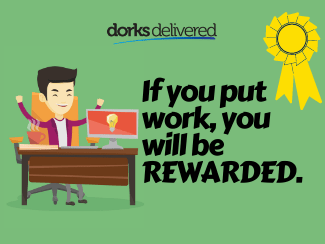
Sarah: If everybody stuck to that exact same model, it would work for everybody. The other thing with COVID is that I’ve found many of my clients actually are in a much stronger cash flow position now than they were before COVID. I think it comes back to people are so more in tune and aware and conscious of the money.
Regularly check up on your contracts
Last year I had a look into what we can do to change the way the business is working. I changed a few bits and pieces and shaved $15,000 worth of expenses a month out of the business.
In the first quarter of COVID, we had the worst on record for 10 years. If that had happened before we cut some costs, we would have been $45,000 worse off. It was followed by the best quarter that we’ve ever had in history, so I can’t complain about COVID. We saved for that rainy day and had six months of expenses in the bank. If you can run the business with no income at all for six months, you should be able to combat nearly everything.
The book “Profit First” may be a gamechanger for you
Sarah: I heard about this book called “Profit First” a lot, and I didn’t really know too much about it. My only perception was you had to have all of these extra bank accounts, which seemed ridiculous, but that’s from my lack of knowledge. Something came up in a forum in January last year, and I told myself to get that book.
So I picked it up, I read it, and absolutely loved that book. I followed the guidelines of the book quite closely, and I set up the other bank accounts, but then I thought, you know, this doesn’t really work for me. So I’ve changed it to make it work for me. In Profit First, they talk about getting to a certain percentage that you want to run your operating expenses through. My 12-month prediction was to be at where those percentages were, I was there within three months.
That was purely from being more conscious. I cut some expenses, but I also increased some expenses because I realised I could actually be more efficient if I just changed a few things. So it got me thinking about what I actually need to run my business, I have never in my business had spare money. Now I do, and it just gives me so much peace of mind. It has been honestly, quite effortless.
IT doesn’t have to be expensive. If you’re starting a business and need reliable IT support and services, fill out the form to learn more about $1 IT services.
If you put in the work, you will be rewarded
Everyone out there that’s thinking, I can’t do this, just take a deep breath. Really feel the stress leaving when you think about that money just sitting there and how much better it is.
Sarah: Why put your energy into worrying that you can make payroll on Monday when you know that you can meet it and put that extra energy and passion into growing your team or growing your business or developing new products or service offerings? If anybody has not heard of Profit First, make it work for you. I would say absolutely, 100% do it. This is not an ad for Profit First, but it absolutely works for me. It’s really easy, and not something that’s going to take you hours each week to get done.
Ask yourself these questions
Why did you get into business to start off with? What was your clarity plan? Are you achieving that clarity plan? Are you stepping in the right direction? It’s important to make sure that you are continually revisiting your clarity plan. Profit First is a tool in the toolbox, and if you’re not going to use the tool, you might not be necessarily building the right thing that you want in the direction that you want.
Sarah’s favourite books
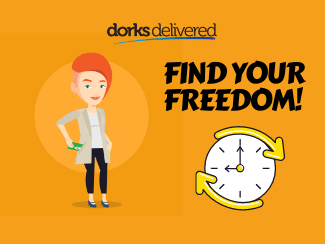
Sarah: My ultimate all-time favourite book is The E Myth.
By Michael Gerber! That was the first business book that I read back in 2007. It’s amazing the way he describes how to make sure that you’ve got technicians and the different hats that you’re wearing in business.
Sarah: It’s absolutely been the foundation of how I built my business. After that book then, yes, I think Profit First would be very high up there. The book that I’m reading at the moment is called SYSTEMology, which talks about putting systems into your business and being able to then not be the person that’s relied upon completely to run your business. That’s really the ultimate goal, right?
It should be! I did a presentation at a school a while ago around what my thoughts are as a business owner to a bunch of year 11 year 12 students. There were people from all walks of life, and I said you can be the bricklayer. But how long can your body let you be the bricklayer before you then have to start working at Bunnings? Nothing wrong with working at Bunnings, but if you want to be the bricklayer and not work at Bunnings later, that shouldn’t be your plan unless that is within your plan.
Being a business owner means you can jump in and off the tools, and it also means that your income should be limitless. You can have people that are doing the work that you don’t like doing. I tell people being a business owner is the best profession, the best thing that you can do.
Sarah: I have a very funny story to tell you. We were driving to school, and we had this very deep conversation about what are you going to do when you grow up? I’m a business owner and my husband as an employee, so one of my kids was trying to grasp what the differences actually meant. So Jaden was eight at the time, and I told him you could be an employee and work for a business which is what dad does. Or you can be a business owner, and your clients and your customers are the ones that pay you.
So I said, what will you do Jaden? Will you get money from the government? Will you be an employee? Or will you be a business owner? He looked at me very seriously, and he said, I think I’m just going to get myself a wife.
Thinking outside the box, that’s great!
IT is indispensable but it shouldn’t cost hundreds of dollars. Fill out the form to learn more about our budget-friendly on-demand IT solutions.
Find your freedom
Sarah: Running a business isn’t for everybody; you’ve got to still have that passion. But you can make it anything that you want it to be. You’re not stuck in the box of working for a particular industry or a boss. All the options can become as limitless as your passion and your imagination. That sounds really corny and cheesy, but it’s really true.
I completely agree. For some people, having the flexibility to be able to do that in their own business is perfect. If anyone out there is wanting to start a business and they haven’t made the decision yet if you can’t save money while you’re in your current job I’m going to say you are going to have a lot of trouble doing that when you have to start from zero and work for yourself.
You have to be the person wearing lots of hats, so if you’re not able to put some of that away and use that as a safety net, you may get in a lot of trouble. You have to have that drive and that passion to succeed no matter what. My wife Sarah was told by someone that she was never going to have her own business. It’s not going to work. There’s no money in doing what you want to do. She met me, and I said, do whatever you want to do, you can make money selling cupcakes, how is that different from doing hair and makeup?
That was two years and two months ago. She now has seven people working with her. So don’t listen to other people. Listen to your heart, let it drive your success and make sure that you’re passionate enough to go through and do that.
Sarah: I don’t think you should go into business purely to make buckets of money. Because that will always be a slog, you’ll always be chasing more money. Whereas if you go into business chasing your passion and you are driven, the money will always just come.
As the saying goes, if you enjoy what you’re doing, you’ll never work a day in your life. At business expos, you can see the people that are business owners and the people that are employed to sit there, because they’re just on their phones. I said this to Sarah on our honeymoon, what is the difference between a holiday and working if you enjoy working?
The Final word
I really enjoyed talking to you again today, is there anything else to touch on before we head off?
Sarah: No, I think that pretty much covers it. Just be mindful of where your money is at, and cash is definitely king.
I’m just going to add to that and say remember to check what you’re paying for. It surprised me how quickly mobile phone plans change. I saw one recently that was $99 a year for unlimited calls on one of the major networks and I thought only a year ago, that would have been $30 or $40 a month. So keep your finger on the pulse with your expenses.
Sarah: With savings, some people think I can’t save all of my money because it’s devoted to my business or if I’m an employee, it’s devoted to paying off the house and groceries. If you just put away 1% of what you earn during the week, you’re not even going to notice. But have a look to see how much is in that bank account at the end of six months and then at the end of 12 months. It has been completely effortless. So then if you just very slowly, systematically increase that 1% you will have money there. Do whatever you want to do with it, but it’s not coming out of your operating expenses money.
It adds up. Look to change your mortgage too. I changed our mortgages on our investment properties and saved $12,000 a year. Now I have $1,000 a month I can put towards something else, and I was just blown away by that. Remember:
Keep your finger on the pulse
Cash is king
Shape your clarity plan into your business plan
If you do these things, you’re going to be on the road to success.
[module-379]




























